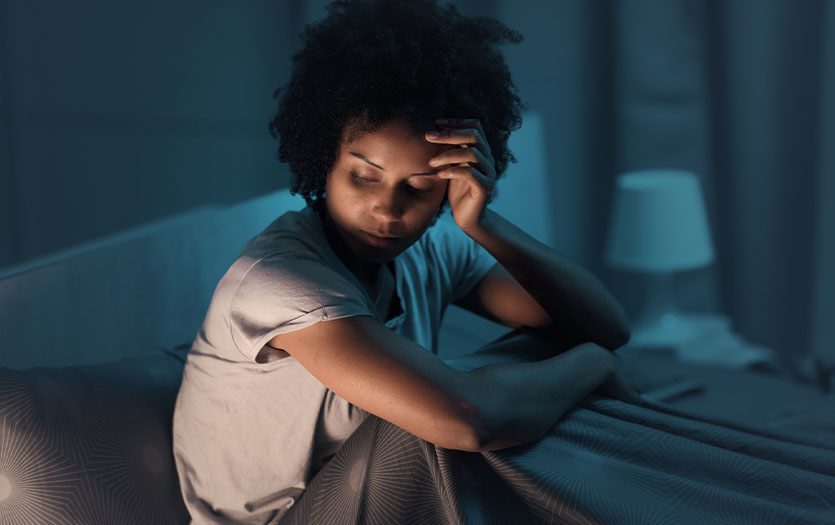
This post was written by Sandra Charles, FNP, PPG – Family Medicine.
Frequent nighttime trips to the bathroom, a condition known as nocturia, becomes more prevalent with age but might signal underlying health concerns. This post explores the potential causes of the phenomenon, key points to discuss with a provider and strategies to help reduce its impact.
What is nocturia?
Nocturia, also known as nocturnal urinary frequency, is a condition that causes individuals to use the bathroom more often at night, specifically after they have already fallen asleep.
According to the National Institutes of Health, one in three adults over 30 wakes at least twice a night to urinate. Among individuals over 65, half get up at least once nightly, and nearly a quarter report two or more episodes.
While age increases the likelihood of experiencing nocturia, it may indicate the presence of other health conditions, such as:
-
Uncontrolled hypertension
-
Poorly controlled diabetes
-
Restless leg syndrome and periodic limb movements
-
Obstructive sleep apnea (OSA)
When to seek help
Experts point out that in addition to the consequences of disrupted sleep, nocturia can also increase a person's risk of falls and injury at night, reduce their quality of life and lower their daytime productivity.
If urination occurs more than 2-3 times per night and continues for several days or becomes bothersome, consult a healthcare provider to help identify potential contributing factors to these symptoms. During the appointment, providers may address specific details about your medical history and habits by asking questions like:
-
How often do you get up at night to go to the bathroom?
-
How much does waking at night to go to the bathroom bother you?
-
Are you afraid of falling, do you feel dizzy or have you fallen when you get up?
-
What is your fluid intake before bedtime?
-
Do you consume diuretic fluids such as caffeine or alcohol before bed?
-
What’s your typical sodium intake?
The medical provider may also review your current medications, including over-the-counter drugs or supplements.
Treatment
If there isn't an underlying issue causing nocturia, the first-line management typically involves making simple lifestyle adjustments. This can look like:
-
Stop drinking liquids, especially those containing alcohol and caffeine, 1-2 hours before bedtime.
-
Reduce sodium. Especially those with congestive heart failure.
-
Use the bathroom twice before going to bed (double voiding). When sitting on the toilet, slightly lean forward to help ensure that the bladder is empty.
-
Practicing good sleep hygiene. Eliminate screen time at least 30 minutes before sleep, and use the bed only for sleeping, not activities such as reading or watching TV.
-
Strengthen pelvic floor muscles. Kegel exercises involve tightening and relaxing the urinary muscles used for voiding. Try three sets of 10 slow tightening and relaxing movements. Most people see the full benefit of these exercises within 10-12 weeks.
If nonpharmacologic interventions do not provide relief, it may be necessary to introduce medications to help with bladder control. For individuals with severe symptoms, a referral to a urologist to explore potential surgical treatment options is the next step.
For more information, to schedule an appointment or establish care with a PPG- Family Medicine provider, visit our website here or call 877-PPG-TODAY.
